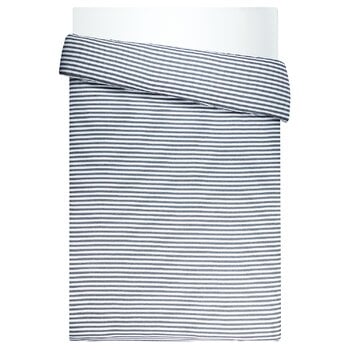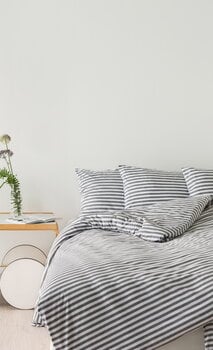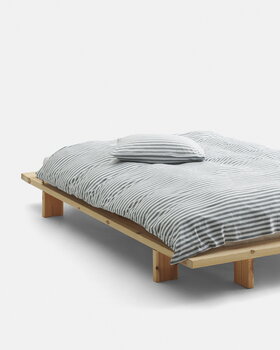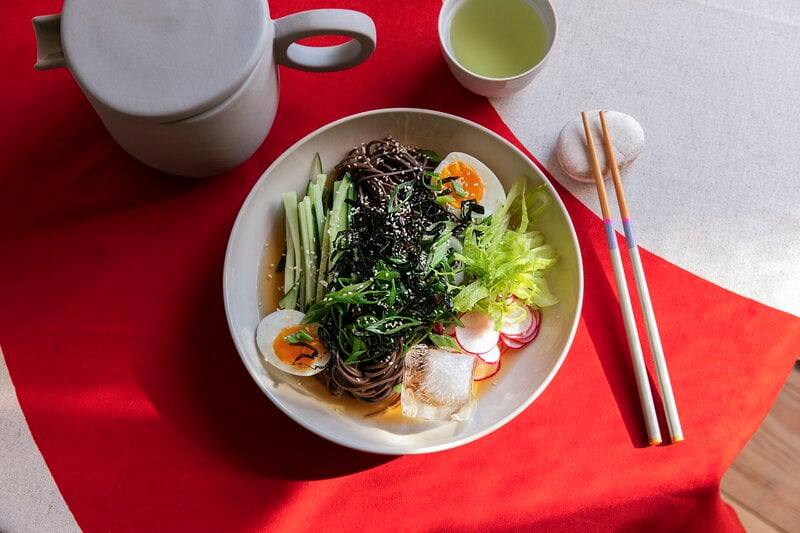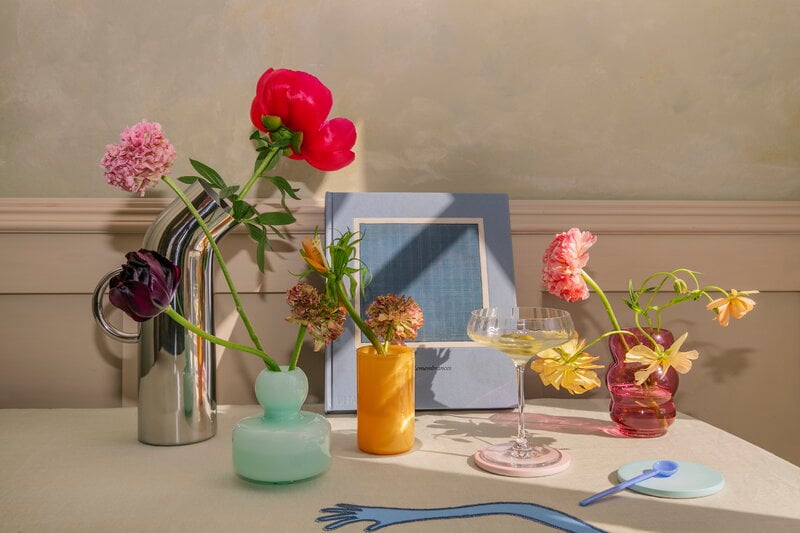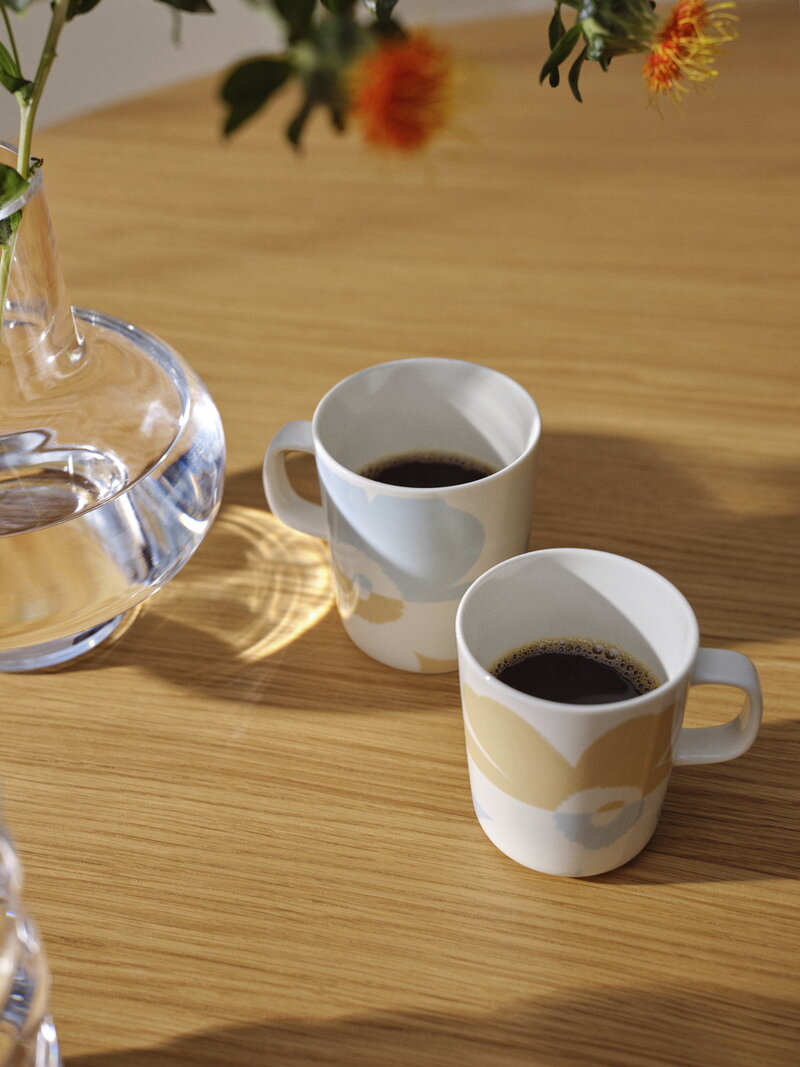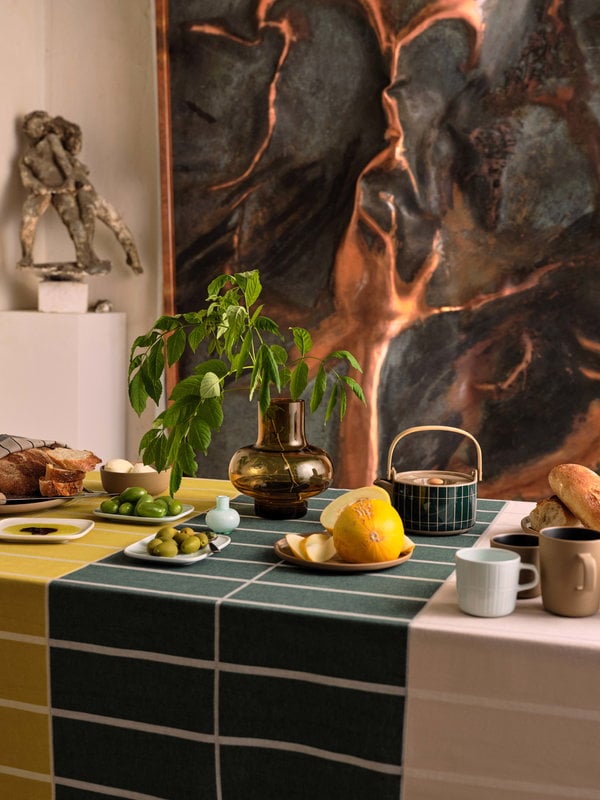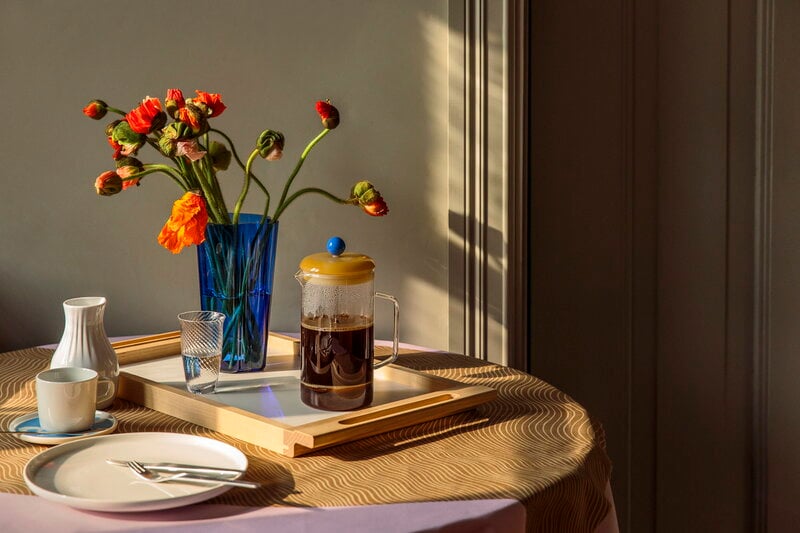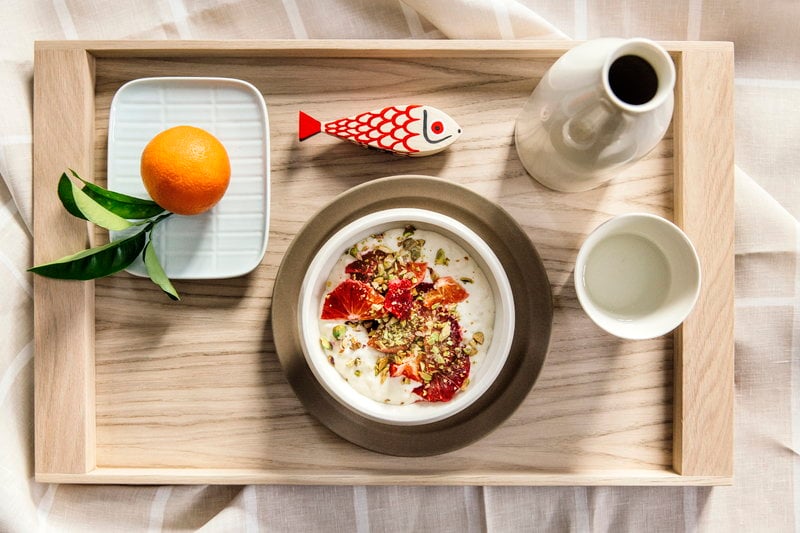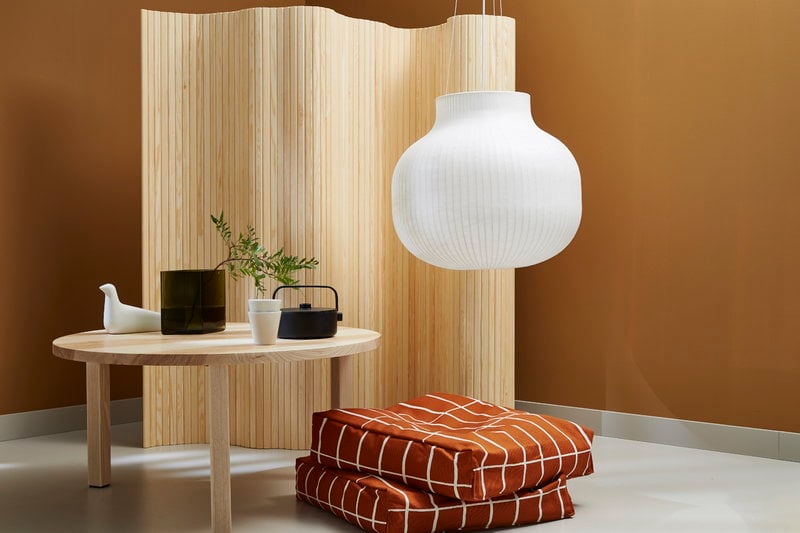Tasaraita duvet cover features one of Marimekko’s signature prints, designed by Annika Rimala. The grey and white stripes form a delightful, graphic pattern that suits both traditional and contemporary bedrooms. What’s more, the duvet cover is made from wonderfully soft cotton jersey, guaranteed to sweeten your dreams.
Tasaraita duvet cover 150 x 210 cm, grey - white
Marimekko
Description
Tasaraita duvet cover features one of Marimekko’s signature prints, designed by Annika Rimala. The grey and white stripes form a delightful, graphic pattern that suits both traditional and contemporary bedrooms. What’s more, the duvet cover is made from wonderfully soft cotton jersey, guaranteed to sweeten your dreams.
Product details (5)
- Material
- 100% cotton jersey
- Colour
- Grey, white
- Length
- 210 cm
- Width
- 150 cm
- Care instructions
- Machine wash at 60 °C
- Product ID
Designer
Annika Rimala (1936–2014) was a Finnish designer who is known best for her work for Marimekko. Rimala worked for Marimekko between 1960 and 1982. Personality and humor are combined with durability and practicality in her design work.
Rimala wanted to make timeless and comfortable clothes for alls ages and all sizes. She created the first tricot clothes for Marimekko, the Tasaraita collection, in 1968. Other well-known fabrics Rimala designed for Marimekko are Pallo, Hedelmäkori, Puketti, Petrooli, Tarha and Viiriäinen.
Read moreReviews (1)
5
Based on 1 reviews
-
A
Anonymous
Dornbirn, Austria
429 days ago
Sustainability
The Product Sustainability Framework, our criteria of sustainable design, helps you find the most sustainable products in our selection. Read below which sustainability criteria this product has met.
Working conditions & labour 6/9
-
Equal opportunities for all employees
-
Commitment to UN Global Compact, fair compensation for all employees
-
Corporate responsibility requirements defined and communicated for suppliers
-
Systematic work for improved inclusion and well-being in the workplace
-
Transparent supply chain
-
Suppliers' compliance to a code of conduct ensured
Eco-friendly production 6/9
-
Fair and resource-wise water-use in production
-
No incineration or landfilling of returned items
-
No use of endangered species as materials
-
No direct environmental emissions or waste (excl. GHGs) from production
-
The sustainability of direct suppliers' production is addressed and monitored
-
Material-efficient and ecological packaging
Climate impact 4/8
-
Company's direct greenhouse gas emissions identified and commitment to reduction
-
Product's carbon impact identified and commitment to reduction
-
Guidance on energy- and eco-efficient use of the product
-
Contribution to climate initiatives beyond the brand’s direct operations
Sustainable materials 5/6
-
Sustainable and long-lasting material choices
-
No harmful or hazardous substances
-
Responsible raw material sourcing and production
-
Materials suited for circularity: monomaterials, recyclable finishings, renewable or recycled contents etc.
-
Ecological materials: natural, biodegradable, recyclable or recycled contents
Circular design 5/5
-
High aesthetic quality promoting long-term use of the product
-
Technically durable product design and material choices
-
Design for enduring life-long quality
-
Design and support for product maintenance, repair and upgradability
-
Innovative circular design solutions: circular service system, resale platform, remanufacturing, collection of used products, etc.

